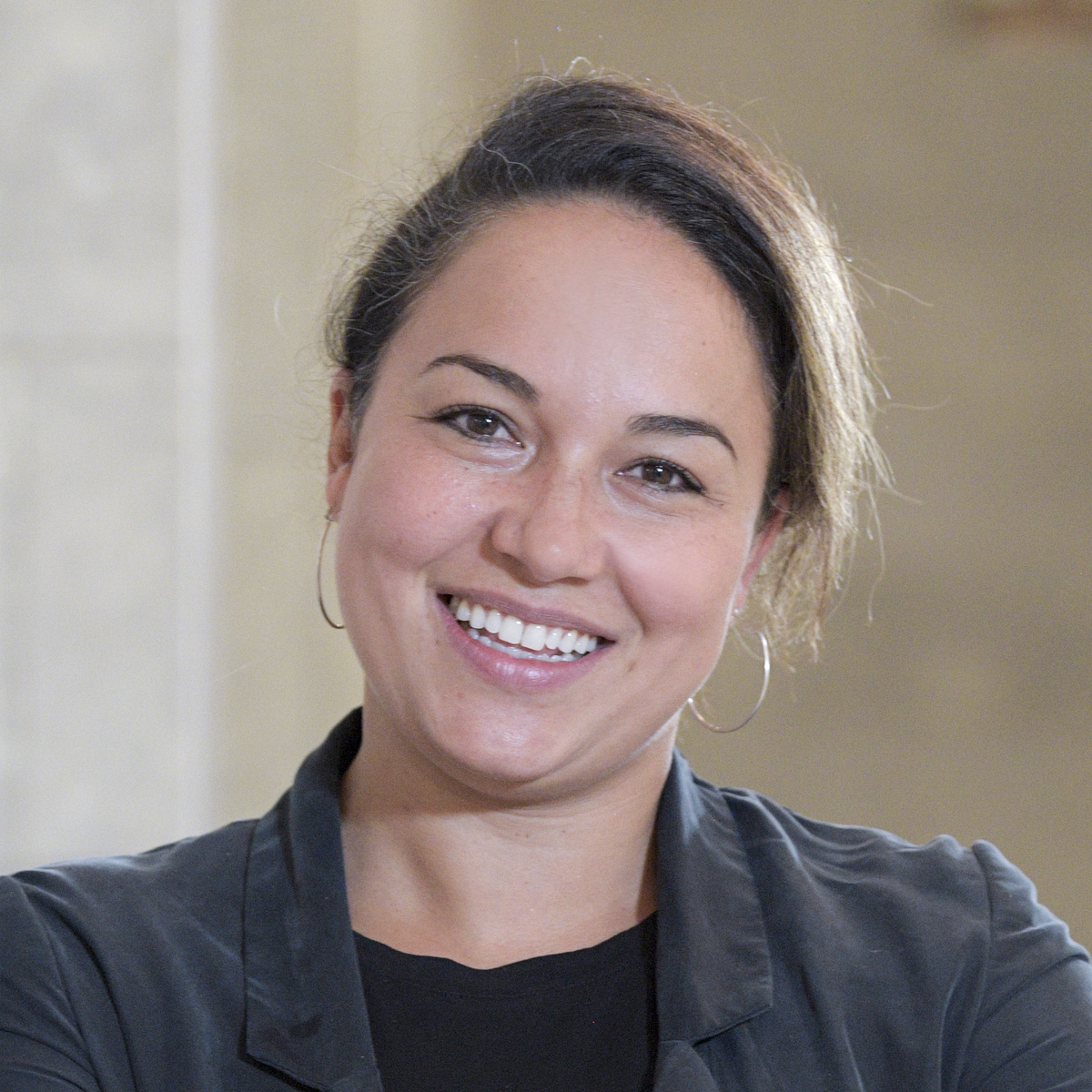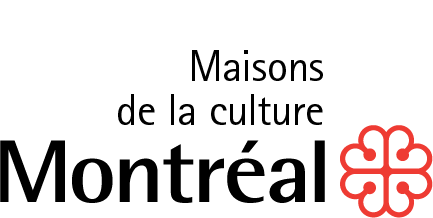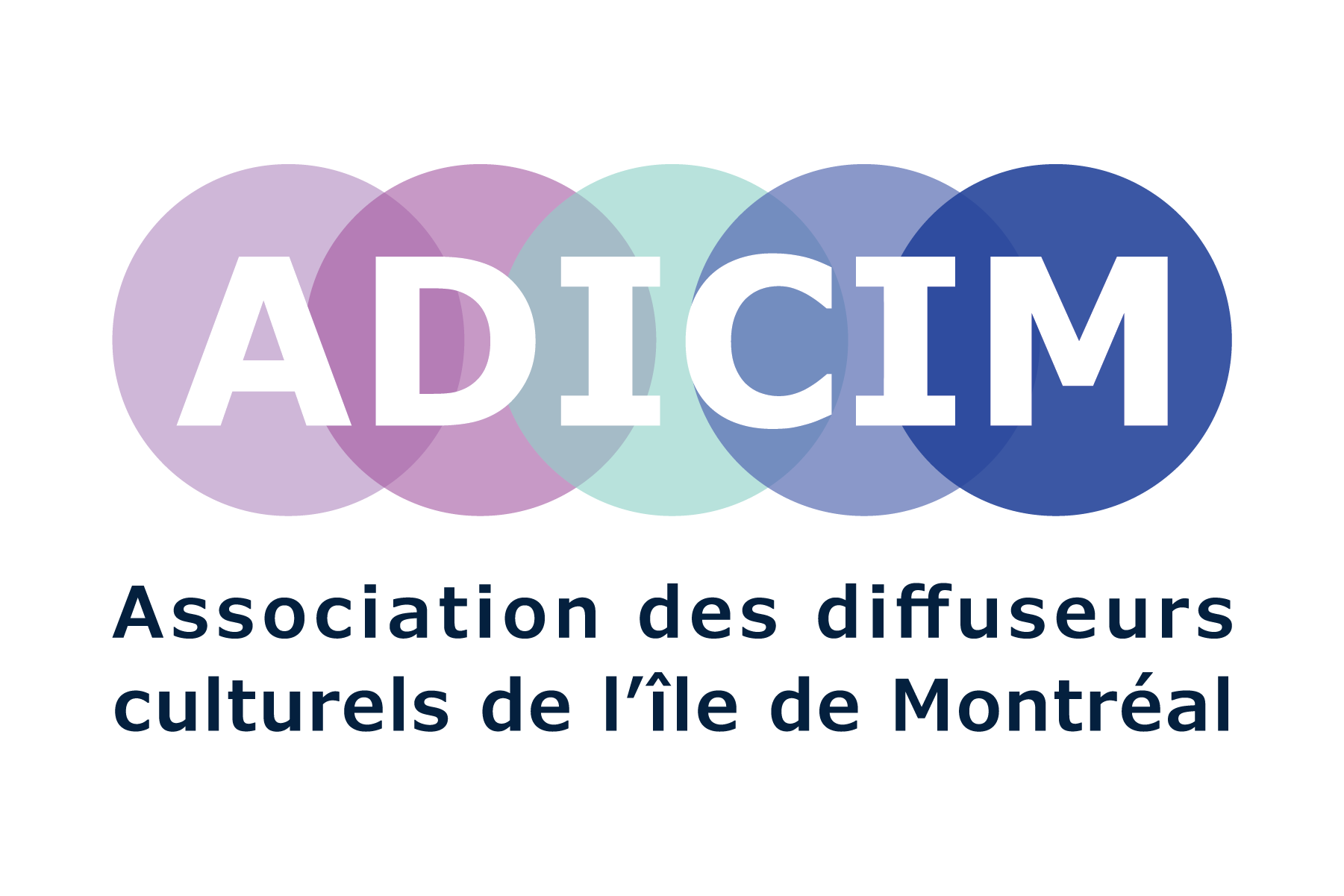October 2 2024, 17 h
The CAM en tournée (Touring Program)
Deadline
Profile
Discipline
Orientation
This program aims to reintroduce artistic works throughout the Island of Montréal, offering Montréal artists the opportunity to connect with new audiences and communities.
The CAM en tournée (Touring Program)
NEW - ORORA Self-Identification Form
From now on, you will be asked to complete an optional self-identification form when you apply on Orora. The information collected will be used to document and measure the impact of the Conseil’s initiatives, improve program eligibility, ensure fair access, help us better host and support artists from underrepresented groups, following the adoption of our equity policy in September 2023.
Personal information collected through this form is protected under privacy legislation (Law 25).
Information session
Do you have any questions about the program?
Sign up for an online information session.
- Session devoted to-non-profit professional arts organizations
September 5, 2024, from 2 to 3 p.m
- Session for artists’ collectives from all disciplines, and for visual artists and visual arts curators only
September 10, 2024, from 10 a m. to 11 p.m.
Introduction
Who is this program for?
- Unincorporated artists’ collectives
- Non-profit professional arts organizations
- Individual artists sponsored by a service organization
- Individual visual arts artists and professional visual arts curators only
What are the program’s objectives?
This program aims to:
- improve the visibility of Montréal artists across disciplines
- make artistic performances accessible to residents on the Island of Montréal
- circulate existing and previously disseminated artistic works
- support the growth of Montréal’s arts organizations and collectives by giving them the opportunity to reach a variety of audiences
- enrich municipal cultural programming by working closely with cultural centres (Maisons de la culture and municipal presentation spaces)
What are the specifics of this program?
This program presents artistic works that have already been created and are ready for touring. Works must have been presented to the public in a professional context prior to the application date.
IMPORTANT
Your project must be technically compatible with partnering venues and locations. You must familiarize yourself with potential locations and, if necessary, adapt your technical data sheet before submitting your project. The evaluation of your request will be influenced by the number of venues in which the proposed work can be presented. Technical information is available in the “Fiches techniques” section under the “DOCUMENTS À JOINDRE” tab.
Support
What type of assistance is provided?
Funding is allocated for a tour of three (3) to eight (8) presentations on the Island of Montréal. The grant is one-time and non-recurrent. The Conseil pays a grant equal to 80% of the costs for disseminating and circulating the works, including preparation, rehearsal, coordination, and administration costs for the tour. It serves as a liaison between presenters and tour participants.
What is the contribution of the presenting partners?
Presenting partners are responsible for disseminating the artistic works accommodating the public, and promotional activities. They supplement the grant by paying a fee equivalent to 20% of dissemination and circulation costs, plus applicable taxes.
Eligibility
What are the general eligibility criteria?
Artists’ collectives
Status and conditions
- Be a group comprising at least two professional artists as defined by the Conseil
- Be represented by a person responsible for the application; the representative must be a member of the collective, reside on Island of Montréal, and be a Canadian citizen or permanent resident
- Two thirds of its members must have Canadian citizenship or permanent residence; the proportion of members of the collective residing outside Canada may not exceed one third
- Comprise a majority of members (50% +1) who reside on the Island of Montréal, including the person responsible for the application
Non-profit organizations
Status and conditions
- Be a non-profit organization or an artists’ cooperative that pays no dividends
- Be headquartered on the Island of Montréal
- Have a board of directors whose members are mainly Canadian citizens or permanent residents of Canada
- Have a main mandate to carry out research, creative, production and dissemination activities in the arts or have a mandate to bring together and represent artists and/or cultural workers in a discipline or multidisciplinary sector
Professionalism
- Possess a level of recognized and demonstrable competence
- Be managed by qualified individuals
- Have stable artistic and/or executive directions (according to the organization’s business model)
- Have presented activities of recognized artistic quality
- Bring together, represent or employ professional artists and/or cultural workers
Individual artists sponsored by a service organization
A service organization is a not-for-profit organization that helps meet developmental needs in a specific domain. It supports artists, artists’ organizations, and writers in their professional practice through a range of activities and services. Its mandate is to provide support and expertise in the circulation of artistic works, and its head office is on the Island of Montréal.
Status and conditions for a sponsored individual artist
- Canadian citizenship or permanent resident status
- Resident on the Island of Montréal for at least one year
- At least one fully realized artistic project in a professional context
Individual visual arts artists and professional visual arts curators only
Status and conditions
- Be a Canadian citizen or permanent resident
- Have resided on the Island of Montréal for at least one year
- Have presented at least one artistic work in a professional context
Professionalism
- Recognized as an artist or professional curator in their field
What works are eligible?
To be eligible, the proposed work must have already been publicly presented in a professional context before the application submission deadline.
What is the timing of the tour for this call?
The 2025-2026 CAM en tournée season will run from June 1, 2025, to May 31, 2026.
How many applications will be accepted?
The number of applications accepted is reviewed annually by the CAM review committees based on the particularities of the disciplines, the volume of applications and the Conseil’s strategic priorities.
What types of works, applicants, activity sectors and applications are ineligible?
Works
At the time of submission:
- a work not yet produced
- a work that has never been publicly presented in a professional context
Applicants
- Individual artists (except individual visual arts artists or professional visual arts curators only)
- Collectives that do not meet the general eligibility conditions
- Collectives wishing to act as a presenter or to organize a festival or events
- Artists’ collectives that are incorporated as a for-profit or non-profit company, or as a general or limited partnership
- Organizations that do not meet the eligibility status and conditions
- Organizations incorporated as a general or limited partnership
- Groups and associations of professional artists
- Public or para-public organizations representing governments or municipal corporation
- Organizations dedicated to teaching, education, and professional training
Activity sectors
- Organizations or cooperatives working exclusively in variety arts and/or comedy
- Organizations or cooperatives working exclusively in cultural mediation
- Collectives wishing to act as a presenter or to organize a festival or events
Applications
- Incomplete applications
- Applications received after the deadline
- Same proposal submitted in two different disciplines
Ineligible applications will not be considered by the evaluation committee.
Accessibility
Can specific populations receive additional financial support to submit their application or complete their project (accessibility costs)?
Yes. Accessibility costs refer to costs that certain individuals, particularly those who are D/deaf and/or living with a disability, must pay to take advantage, in the same way as others do, of the services and programs offered by an institution for research, to create, produce or disseminate their art. Reimbursement of part of these costs by the Conseil des arts de Montréal may offset the financial disadvantage.
The Support Fund for Accessibility Costs is a financial assistance measure that complements the Conseil’s other programs. The deadline to apply for support for accessibility costs is the same as that for the program being applied to.
Artists, collectives or organizations that have obtained financial assistance from the Conseil to carry out a project can also file an application for accessibility cost support up to three months after the decisions related to the successful project have been sent out, provided the project is not completed before the deadline to send out decisions for accessibility cost support applications.
Support is divided into three components:
- component 1 – Financial support to submit a grant application or to apply for one of the Conseil’s initiatives
- component 2 – Financial support for accessibility costs for a project funded by the Conseil
- component 3 – Financial support for presenter organizations for accessibility costs to welcome audiences for a project funded by the Conseil
For more details, please see this additional information on the Support Fund.
Applications
Can I submit more than one application in the same year?
Only one work may be submitted to the CAM en tournée program per call for applications, except in the following cases:
- film industry organizations may submit a maximum of five films or documentaries (Note: a separate application must be submitted for each film).
- service organizations with a coaching mandate (in addition to having expertise in the circulation of artistic works) may sponsor up to two works by individual artists annually
Please note that the program is designed to offer touring opportunities to as many people as possible. Year after year, it promotes new artists, artists’ collectives, and artistic organizations, allowing the public to access a broad range of artistic work.
Who should submit the application?
Artists’ collectives
The collective must have a designated member responsible for the application. This person must be a member of the collective, reside on the Island of Montréal, and have Canadian citizenship or permanent resident status.
A person may represent more than one collective, as long as each collective has a different mandate, and the majority of members (50% +1) is different from one collective to the next.
Please note that at the end of the year, the person responsible for applications will receive the tax slips (T4A and Relevé 1) for the grant amount.
Non-profit organizations
The representative (administration, direction) designated by the organization or cooperative or named by the Board.
Service organization sponsoring an individual artist
The person responsible for the service organization (administration, direction) is the person responsible for the application.
Individual visual artists or professional visual arts curators only
The individual artist or professional visual arts curator is the person in charge of the application.
Please note that at the end of the year, the person responsible for applications will receive the tax slips (T4A and Relevé 1) for the grant amount.
What information and documents must I include in my application?
For all applications:
- completed application form on ORORA
- a budget using the Excel form provided
- technical data sheet for the work updated according to the municipal dissemination context
- internet links (three maximum) that present excerpts or complete works
- if there have been any amendments, amended letters patent and by-laws of the organization
Organizations that are applying to the Conseil des arts de Montréal for any program for the first time will need to provide the letters patent and by-laws of the organization.
Evaluation
How are applications evaluated?
The Conseil, with the help of peer evaluation committee members and representatives of the municipal dissemination networks (Maisons de la culture and ADICÎM), assesses all applications on merit, taking into account the dissemination potential and the comparative value of all works.
What are the evaluation criteria?
Artistic quality 35%
- Originality: how the work stands out from all artistic proposals
- Audacity: work showing imagination, creativity and difference in the subject matter, the proposal and the artistic practice
- Merit of the project in terms of the artistic approach and the applicant’s discipline
Impact of the work 30%
- Ability of the artist, collective or organization to forge connections between communities and the work (different generations, diversity, cultural and ethnic origins, and CAM priority groups, in various socio-economic contexts)
- Expected results in terms of target audiences
Feasibility 30%
- Work and technical sheets adapted to the municipal dissemination context including consideration of available play areas
- Ability to coordinate and undertake the tour
- Realistic budget forecasts
- Efforts made to compensate artists
Ecoresponsible transition 5%
- Projects incorporating eco-responsible practices (eco-design, reuse of materials, sustainable mobility, digital sobriety, respectful, local and sustainable sourcing, decarbonization, etc.)
- Development of practices for pooling and sharing tools, resources and knowledge
What is the response time?
It will take 16 to 20 weeks from the deadline for the CAM to process the application and reach a decision.
The decision-making process involves six steps
- The CAM en tournée team receives and checks the eligibility of the application
- The CAM’s evaluation committees analyze and recommend applications
- Preselection by the broadcasters of the two networks (MCM and ADICÎM), among the recommended works
- Final distribution of works according to budgetary envelopes and local contexts.
- Verification of technical compatibility (feasibility)
- Final decisions on grant approvals rendered by members of the Board in February 2025
How will I be informed of the decision?
The applicant will receive an email invitation to view the results on the ORORA platform. No decisions will be communicated by phone.
Can I appeal the decision?
The Conseil’s decisions are final and not subject to appeal. However, Conseil staff are available to answer any questions regarding decisions. Equity, ethics and proximity are an integral part of our values, and listening and empathy will always be a priority in our customer relations. With the aim of improving the way we work, we are now providing you with a feedback form, which you can find here.
However, all organizations, collectives and artists wishing to share their concerns with us agree not to communicate with members of the evaluation committee or the Conseil’s Board of Directors about the management or evaluation of their application, or about decisions related to their application.
Payment
How will the grant be paid?
The Conseil grant is paid in two instalments
- 80% of the grant no more than 30 days before the start of the season
- 20% upon receipt of the activity report and revised budget
In addition, each venue will pay a fee (+ taxes) directly, in a single payment, on the date specified in the agreement signed by both parties.
Payment times may vary depending on the internal processing time of Ville de Montréal departments, which are beyond the control of the Conseil des arts de Montréal.
Obligations
Report
An activity report is required within three months of the end of the tour.
The form will be available on the ORORA portal.
Commitments
Accepting payment of the grant constitutes, for the artist, collective or organization, an undertaking to complete the activities covered by the grant and to comply with the accompanying conditions.
The artist, artists’ collective or arts organization agrees to:
- complete the tour as planned
- notify CAM as soon as possible if you are unable to carry out the project in the fiscal year for which the grant was awarded; partial or full reimbursement of the amount awarded may be requested
- submit the activity report and revised budget before the deadline
- if possible, please include with your report any photographs, videos, or other relevant royalty-free visuals that CAM may use for promotional or archival purposes
In addition, organizations, collectives, artists and their representatives agree at all times not to communicate with members of the evaluation committees or members of the Council’s Board of Directors in any matter relating to the management, evaluation or decisions related to their application.
The Conseil des arts de Montréal staff are available to answer questions about the application evaluation process and decisions.
Program Results
Results ratified by the Board of Directors on February 20, 2024
Number of eligible applications submitted: 253
Number of applications accepted: 66
List of recipients:
Organizations
ARTS SUR GLACE – LE PATIN LIBRE
Bigico
Centre des musiciens du monde
CIRCA art actuel
Compagnie Catherine Gaudet
Compagnie de danse Ebnfloh
Compagnie de théâtre Le Carrousel
Corpuscule Danse
Créations Unuknu
Danse Carpe Diem/Emmanuel Jouthe
Danse-Cité
Destins croisés
Ensemble Arion inc.
Festival de films CINEMANIA
FESTIVAL INTERNATIONAL DU FILM POUR ENFANTS DE MONTRÉAL
Joe Jack & John
La marche du crabe
L’ACTIVITÉ
Les productions Funambules Médias
Les Productions Ondinnok Inc.
Lorganisme
Marguerite à bicyclette
Mouvement Climat Montréal
MUTEK
OCCURRENCE ESPACE D’ART ET D’ESSAI CONTEMPORAINS
Ombres Folles
Orchestre Métropolitain
Orchestre Symphonique de Montréal
Parts+Labour Danse
Plein(s) Écran(s)
PLEURER DANS’ DOUCHE
Pourpour Inc
Productions Hôtel-Motel
Productions Totem Contemporain
Quadrature
Quatuor Bozzini
Repercussion Theatre
TENON MORTAISE, THÉÂTRE MULTIDISCIPLINAIRE
Théâtre Bouches Décousues
Théâtre I.N.K.
Vías Arts et Durabilité
Individual artist
Kama Maureemootoo
Collectives
Andrés Vial Trio
Banitsa
Benjamin Deschamps
Camille Paré-Poirier
Claudia Chan Tak
Collectif de l’Éléphant
Cordâme
Donald Dogbo
Emmanuelle Lizère-tigouli
Ensemble Urmawi
Graham Soul
Kate Wyatt Quartet
Marina Thibeault et Janelle Fung
Projet Dharani
Rachel Therrien Latin Jazz Project
Razalaz
Rémi Cormier
Sarah Wendt + Pascal Dufaux
Seb&Julia
Sophie Gee
Sophie Lukacs
THE CHITA PROJECT
Thomas Hellman et Olaf Gundel
Yoel Diaz Mundo Jazz Quartet
Total amount invested: 1 733 080 $
How can we help you?
Need more information?

Taïs Fleury-Berthiaume


